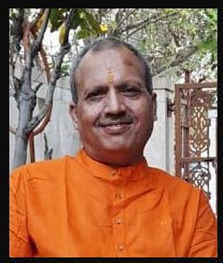
Embracing Yoga for a Healthier, Happier You
Hello everyone, and a big, warm welcome to all our new students joining the Sri Adiyoga International Institute family! I am absolutely thrilled to have you with us as we begin this exciting journey together into the world of Yoga, wellness, and integrated health. At our institute, we believe in the power of Yoga not just as a practice, but as a way of life that brings balance and joy to our everyday experiences.
Here, you'll discover how the ancient teachings of Yoga can be applied to modern life, helping you to manage stress, improve your health, and find inner peace. We're not just about learning poses; we're about understanding how Yoga connects your mind, body, and spirit for complete well-being.
This year, we're especially focused on exploring new ways Yoga can contribute to our overall health, and we're excited to involve you in research and studies that show just how powerful this ancient practice can be. Whether you prefer to learn with us in person or online, we've made sure our programs are flexible and accessible to everyone.
I'm also incredibly proud to share that our students made a significant impact at the Yogdarshan Conference 2024, where they presented an impressive 14 research papers—the highest number from any single institute in Maharashtra! It's a testament to their dedication and the quality of research fostered here at Sri Adiyoga. We are so excited to see what you accomplish together.
For our alumni, we'd love for you to share your stories and experiences on www.sriadiyogtimes.com, inspiring others with your Yoga journey and involvement in community events. And for all our students, make sure to check out the "sriadiyoga online study app," where you'll find tons of resources to support your learning.
At Sri Adiyoga, we're more than just a school; we're a community dedicated to helping each other grow, learn, and thrive.
Welcome to the family!